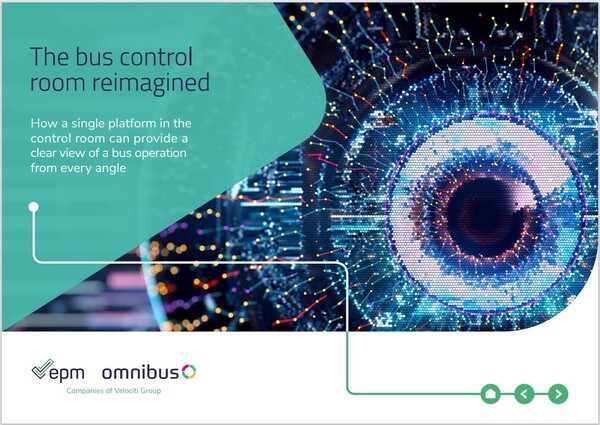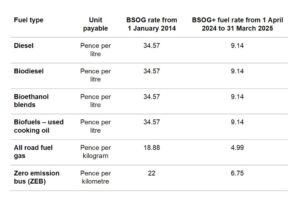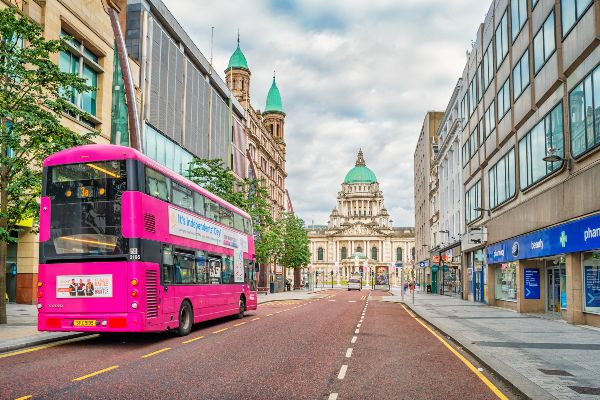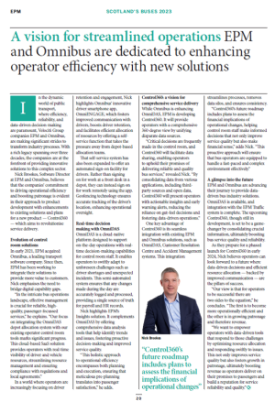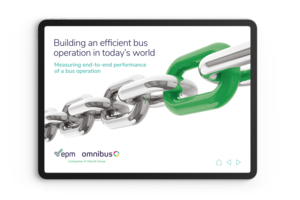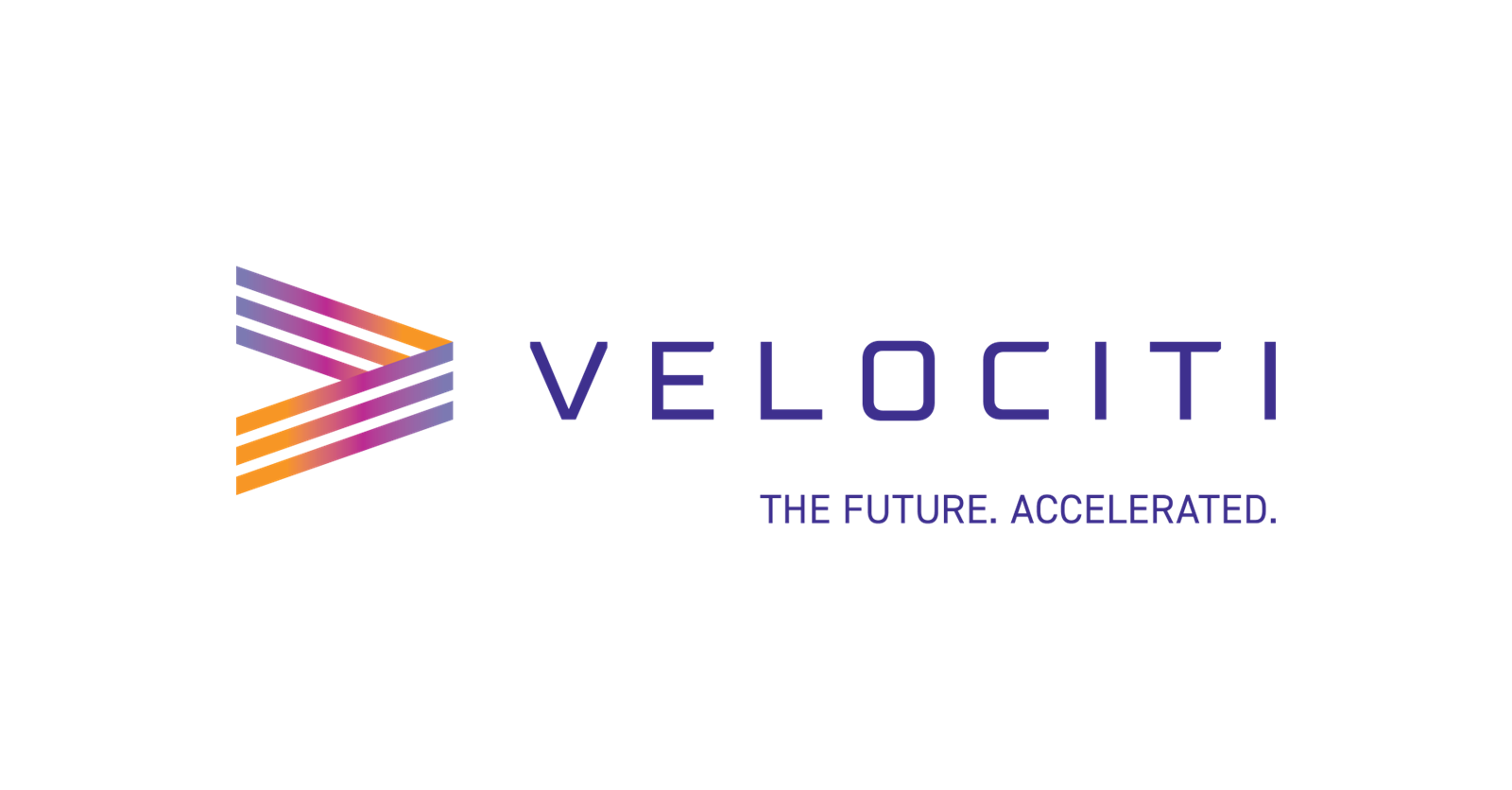Evolution of control room solutions
In early 2021, EPM acquired Omnibus, a leading transport software company. Since then, EPM has been working to integrate their solutions to provide more value to customers. Nick emphasises the need to bridge digital capability gaps.
“In the intricate bus operations landscape, effective management is crucial for reliable, high-quality, passenger-focussed services,” he explains. “Our focus on integrating the OmniDAS depot allocation system with our existing operator control room tools marks significant progress. This cloud-based SaaS solution provides operators with real-time visibility of driver and vehicle resources, streamlining resource management and ensuring compliance with regulations and local agreements.”
In a world where operators are increasingly focusing on driver retention and engagement, Nick highlights Omnibus’ innovative driver smartphone app, OmniENGAGE, which fosters improved communication with drivers, boosts driver retention, and facilitates efficient allocation of resources by offering a self-service function that takes the pressure away from depot-based allocation teams.
That self-service system has also been expanded to offer an automated sign-on facility for drivers. Rather than signing on for work at a front desk in a depot, they can instead sign on for work remotely using the app. Geofencing technology ensures accurate tracking of the driver’s location, enhancing operational oversight.
Real-time decision making with OmniDAS
OmniDAS is a cloud-native platform designed to support on-the-day operations with real-time decision-making capabilities for control room staff. It enables operators to swiftly adapt to unforeseen challenges such as driver shortages and unexpected incidents. This semi-automated system ensures that any changes made during the day are accurately logged and processed, providing a single source of truth for payroll and HR records.
Nick highlights EPM’s Insights solution. It complements OmniDAS by offering comprehensive data analysis tools that help identify trends and issues, fostering proactive decision-making and improved service quality.
“This holistic approach to operational efficiency encompasses both planning and execution, ensuring that meticulous pre-planning translates into passenger satisfaction,” he adds.
Control360: a vision for comprehensive service delivery
While Omnibus is enhancing OmniDAS, EPM is developing Control360. It will provide operators with a comprehensive 360-degree view by unifying disparate data sources.
“Critical decisions are frequently made in the control room, and Control360 will facilitate data sharing, enabling operators to uphold their promises of delivering reliable and quality bus services,” revealed Nick. “By consolidating data from various applications, including third-party sources and open data, Control360 will present operators with actionable insights and early warning alerts, reducing the reliance on gut-feel decisions and fostering data-driven operations.”
One key advantage of Control360 is its seamless integration with existing EPM and Omnibus solutions, such as OmniDAS, Customer Resolution Centre and Accident Management systems. This integration streamlines processes, removes data silos, and ensures consistency.
“Control360’s future roadmap includes plans to assess the financial implications of operational changes, helping control room staff make informed decisions that not only improve service quality but also make financial sense,” adds Nick. “This proactive approach will ensure that bus operators are equipped to handle a fast-paced and complex environment effectively.”
A glimpse into the future
EPM and Omnibus are advancing their journey to provide data-driven bus industry solutions. OmniDAS is available, and integration with the EPM Traffic system is complete. The upcoming Control360, though still in development, is set to be a game-changer by consolidating crucial information, ultimately boosting bus service quality and reliability.
As they prepare for a phased launch for Control360 in early 2024, Nick believes operators can look forward to a future where data-driven decisions and efficient resource allocation — backed by improved communication — are the pillars of success.
“Our view is that for operators to be successful there are two sides to the equation,” he concludes. “The first is to become more operationally efficient and the other is in growing patronage and therefore revenue.
“We want to empower operators with data-driven tools that respond to those challenges by optimising resource allocation and responding swiftly to issues. This not only improves service quality but also fosters growth in patronage, ultimately boosting revenue as operators deliver on their promises to passengers and build a reputation for service reliability and quality.”
